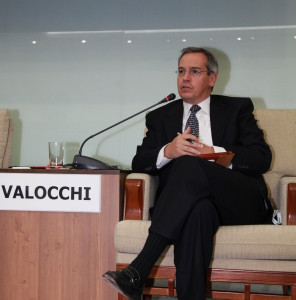The plan built upon a pilot program on the Korean island of Jeju which concluded this May, a senior company executive told at the Daegu 2013 Congress on 17 October.
“Smart grids” differ from traditional one-way power delivery grids in that sensors are installed to monitor in highly granular detail the patterns of consumption and delivery. With all parts of the grid network talking to each other, data can be analyzed in order to make decisions that maximize efficiency and the use of renewable power sources.
“We have to introduce intelligent operations systems. It will require a lot of budget, and we are considering how to ensure ROI,” said KEPCO Vice President Hwang Woo-hyun. KEPCO’s plan aims to spend $25 billion (27 trillion Won) on smart grid development by 2030, with most coming from the private sector and about $2.8 billion coming from the government. “For that heavy investment, we will need to increase the electricity price - but customers won’t like that. They will prefer to stick to the old ways,” said Hwang. Still, Hwang says the investments will pay off in the long run in ensuring a stable, flexible, and eco-friendly power grid.
Jochen Kreusel, Head of Smart Grid for Switzerland’s ABB, said any discussion of building out the smart grid concept has to begin with explaining the consumer benefit. “We have to offer them some sort of value - not always only economic value, but sometimes maybe just feeling better,” he said. “If you tell them they are consuming energy more sustainably, maybe they will feel good about that.”

500 different smart grid pilot projects are being deployed around the world. “We have to show the successes of those 500 projects,” said Ronnie Belmans, Executive Director of the Global Smart Grid Federation. “But we also have to show the failures, because we can learn a lot more from the failures.”
This news story is based on the Game Changer session, “Smart grid: Energizing social innovation”, at the 2013 World Energy Congress.





